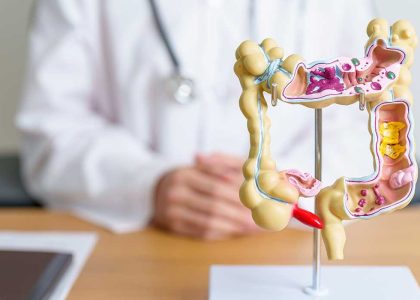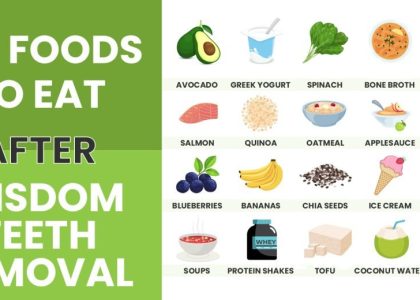When you’re sick, the last thing you need is the added discomfort of your gums hurting. The answer to “why do my gums hurt when I’m sick” lies in the body’s immune response. When you’re under the weather, your immune system is working hard to combat the illness, causing inflammation that can extend to your gums. This discomfort can range from mild tenderness to more severe pain, but understanding this connection can help you manage the symptoms effectively. Let’s delve deeper into this phenomenon and explore ways to alleviate the discomfort.
Sure! Here’s a detailed and engaging main body for the blog article on “Why Do My Gums Hurt When I’m Sick?”
Why Do My Gums Hurt When I’m Sick?
Introduction
When you’re feeling under the weather, it’s not uncommon to experience a range of discomforts, including sore gums. Have you ever wondered why your gums hurt when you’re sick? In this article, we’ll delve into the reasons behind this common phenomenon and provide some tips on how to alleviate the discomfort.
Causes of Gum Pain During Illness
During an illness, such as a cold or the flu, your body’s immune system is in overdrive, fighting off the infection. This can lead to inflammation throughout your body, including in your gums. The swelling and tenderness you feel in your gums when you’re sick are often a result of this immune response.
1. Dehydration
When you’re not feeling well, you may not be drinking enough fluids, which can lead to dehydration. Dehydration can cause your gums to become dry and more prone to irritation and pain. Make sure to stay hydrated when you’re sick to help alleviate gum discomfort.
2. Mouth Breathing
When you have a stuffy nose or congestion, you may find yourself breathing through your mouth more often. Mouth breathing can dry out your gums and oral tissues, leading to soreness and discomfort. Try to keep your nasal passages clear and breathe through your nose to prevent this issue.
3. Medication Side Effects
Many medications used to treat common illnesses can have side effects that impact your oral health. Some medications may cause dry mouth, which can contribute to gum pain. Be sure to read the labels of any medications you’re taking and talk to your healthcare provider if you experience oral side effects.
Home Remedies for Gum Pain
If you’re experiencing gum pain during illness, there are several home remedies you can try to help alleviate the discomfort.
1. Saltwater Rinse
Mixing warm water with salt and swishing it around your mouth can help reduce inflammation and soothe sore gums. Saltwater has natural antiseptic properties that can promote healing.
2. Stay Hydrated
Drink plenty of fluids, such as water and herbal teas, to keep your mouth moist and prevent dehydration. Avoid sugary drinks and caffeine, as they can further irritate your gums.
3. Gentle Oral Care
Be gentle when brushing and flossing your teeth while you’re sick to avoid aggravating your sensitive gums. Use a soft-bristled toothbrush and avoid harsh mouthwashes that may contain alcohol.
When to See a Dentist
While gum pain during illness is often temporary and resolves on its own, there are instances where you should seek professional dental care.
1. Persistent Pain
If your gum pain persists even after your illness has subsided, it could be a sign of a more serious dental issue, such as gum disease. Schedule an appointment with your dentist for a thorough evaluation.
2. Swelling or Pus
If you notice swelling, redness, or the presence of pus in your gums, it could be a sign of infection. Seek immediate dental care to prevent the infection from spreading.
3. Bleeding Gums
If your gums are bleeding along with pain during illness, it could indicate gum disease or other oral health issues. A dentist can assess the underlying cause and recommend appropriate treatment.
Gum pain during illness is a common occurrence, often due to the body’s immune response and other factors like dehydration and medication side effects. By staying hydrated, practicing good oral hygiene, and using home remedies like saltwater rinses, you can help alleviate gum discomfort while you’re sick. Remember to seek professional dental care if your symptoms persist or worsen to ensure your oral health remains in top condition. Take care of your gums, especially when you’re feeling under the weather!
7 signs of a dental abscess … #shorts
Frequently Asked Questions
Why does sickness cause gum pain?
When you are sick, your immune system is working hard to fight off the illness. This can lead to increased inflammation in your body, including your gums. The stress of being sick can also affect your oral health, making your gums more prone to sensitivity and discomfort.
How can a cold or flu impact the gums?
During a cold or flu, your body may become dehydrated, causing your mouth to dry out. This dryness can contribute to gum irritation and pain. Additionally, nasal congestion can lead to mouth breathing, which can further dry out the gums and make them more susceptible to discomfort.
Is there a link between fever and gum pain?
When you have a fever, your body’s temperature rises above normal levels. This elevated temperature can trigger an inflammatory response throughout your body, including in your gums. Inflammation in the gums can cause tenderness and pain, especially when brushing or flossing.
Final Thoughts
When you’re sick, your body’s immune response can lead to inflamed gums. The increased blood flow to fight off infection can cause gum pain. Additionally, dehydration from illness can contribute to gum discomfort. So, “why do my gums hurt when I’m sick?”—the answer lies in the body’s response to illness. Ensuring proper hydration and practicing good oral hygiene can help alleviate gum pain during sickness.






